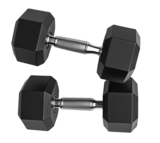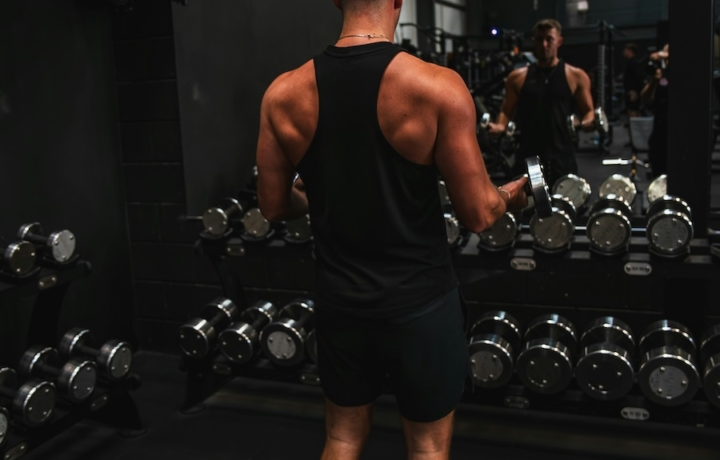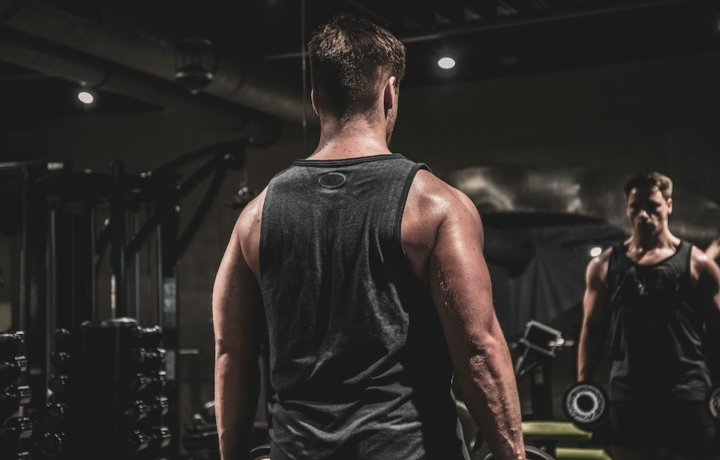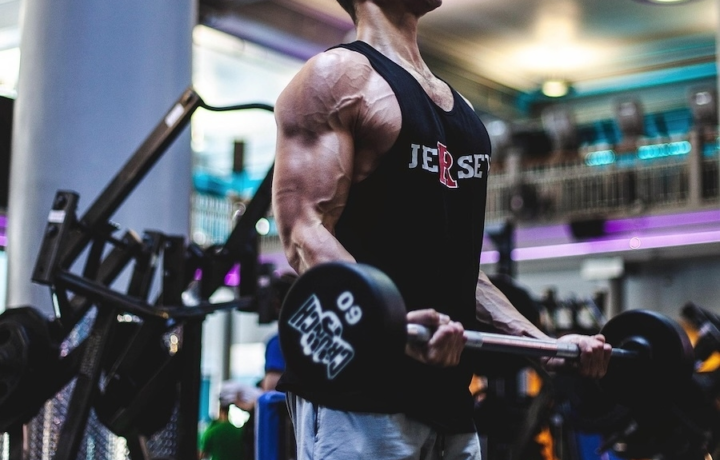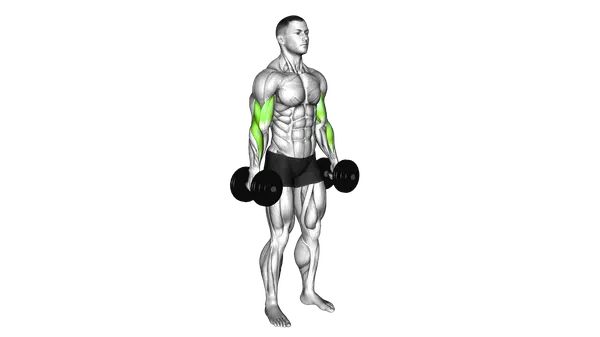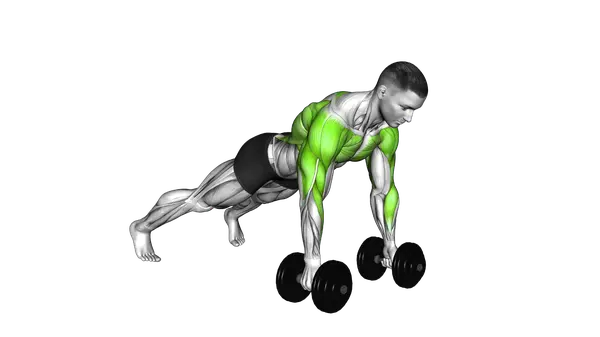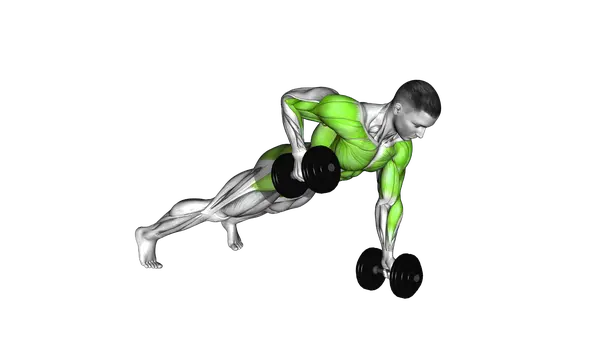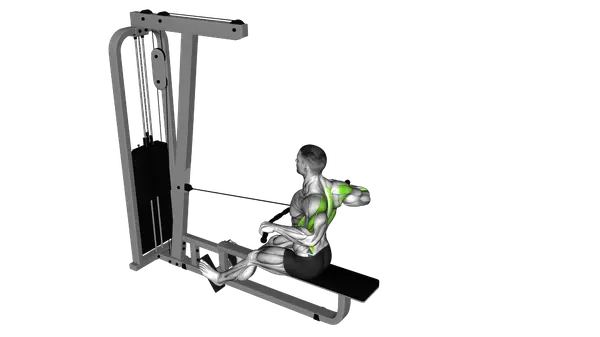Exercise
Dumbbell Biceps Curl
The Dumbbell Biceps Curl is a classic strength exercise that builds biceps size and strength with full control and balanced muscle activation.
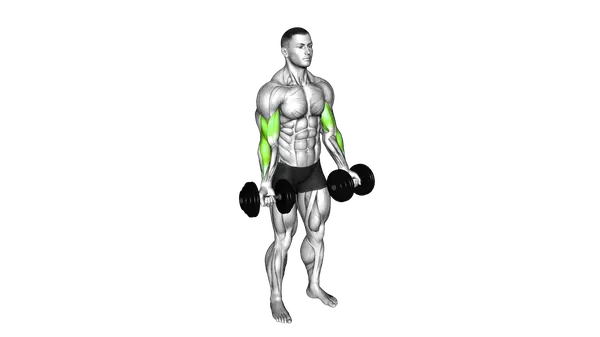
Dumbbell Biceps Curl
The Dumbbell Biceps Curl is a fundamental upper-body exercise focused on strengthening the biceps. Using dumbbells allows each arm to work independently, helping correct strength imbalances and improve overall arm symmetry.
By curling the weights in a controlled motion while keeping your elbows close to your sides, you place constant tension on the biceps throughout the movement. This makes the exercise effective for both muscle growth and strength development, especially when proper form and tempo are maintained.
Dumbbell biceps curls are suitable for all fitness levels and fit easily into beginner, hypertrophy, or strength-focused programs. You can adjust difficulty by changing the weight, slowing down the lowering phase, or adding pauses at the top of the curl to increase time under tension.
How to Perform the Dumbbell Biceps Curl
- Stand with your feet shoulder-width apart, holding a dumbbell in each hand with your arms fully extended and palms facing forward.
- Keep your upper arms fixed against the sides of your torso, maintaining a straight back and slightly bent knees for stability.
- Exhale as you curl the dumbbells upward by flexing at the elbow, keeping your wrists straight and elbows close to your sides throughout the movement.
- Continue curling until the dumbbells are at shoulder level and your biceps are fully contracted, pausing briefly at the top of the movement.
- Inhale as you slowly lower the weights back to the starting position, controlling the descent while maintaining tension in your biceps.
- Maintain a neutral spine position throughout the exercise, avoiding the tendency to swing your body or use momentum to lift the weight.
- For optimal muscle engagement, focus on squeezing your biceps at the top of each curl and maintaining a controlled tempo throughout both phases.
- Complete your desired number of repetitions, ensuring the final repetition returns to the full starting position with arms extended.
Important information
- Keep your elbows fixed at your sides throughout the movement to isolate the biceps and prevent shoulder involvement.
- Choose a weight that allows you to maintain proper form throughout your set—if you're swinging or using momentum, reduce the weight.
- Make sure your wrists remain straight and don't curl forward during the exercise to prevent unnecessary strain.
- Maintain a slight bend in your knees and engage your core to protect your lower back during the movement.
FAQ - Dumbbell Biceps Curl
Dumbbell biceps curls primarily target the biceps brachii (the two-headed muscle on the front of your upper arm), while also engaging the brachialis and brachioradialis as secondary muscles. This makes it an efficient exercise for complete arm development.
Stand with feet shoulder-width apart, holding dumbbells at your sides with palms facing forward. Keep your elbows fixed at your sides as you curl the weights toward your shoulders, squeezing your biceps at the top before slowly lowering back down. Maintain a straight back and avoid swinging the weights or using momentum.
To make curls easier, reduce the weight and focus on perfect form, or try seated curls for more stability. To increase difficulty, add weight, slow down the tempo (especially during the lowering phase), try alternating arms, or experiment with different grip positions such as hammer curls or reverse curls.
For most people, training biceps 2-3 times per week with at least 48 hours of recovery between sessions is optimal. If you're doing a body-part split routine, you might dedicate one day to arms or pair biceps with back exercises, while full-body workouts might include biceps curls 2-3 times weekly.
Avoid using momentum by swinging your body, keeping your upper arms and elbows fixed throughout the movement. Don't rush through repetitions—control the weight especially during the lowering phase. Finally, resist the urge to use weights that are too heavy, which compromises form and reduces biceps engagement.

Dumbbell Biceps Curl
Exercise Details
Primary Muscles
Secondary Muscles
Muscle Groups
Mechanic
Built for progress
Take the guesswork out of training
Create personalized AI-powered workout plans that evolve with you. Train smarter, track every rep and keep moving forward, one workout at a time.







